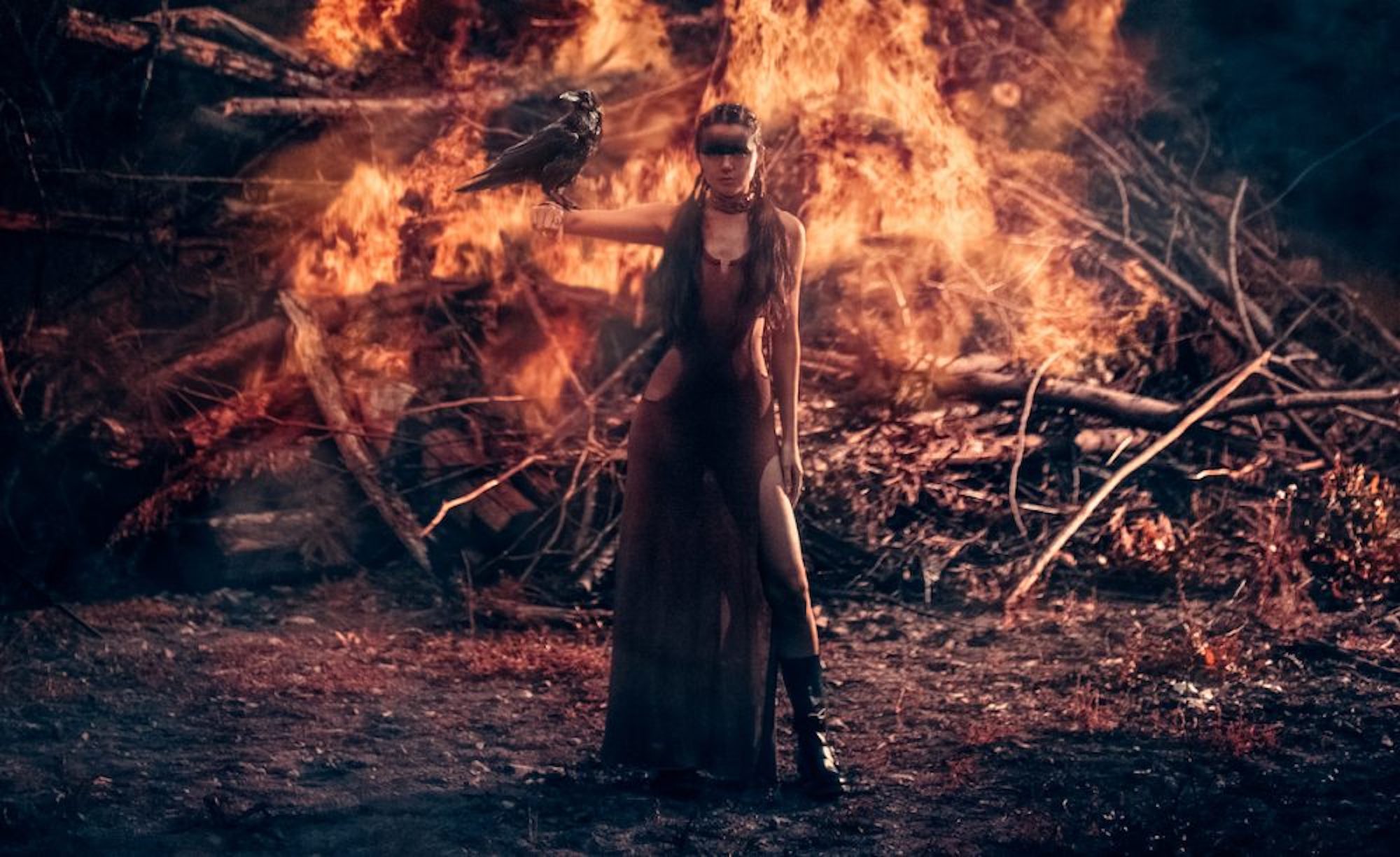
In her poem “Reconciliation, A Prayer,” former U.S. Poet Laureate and Muskogee Creek musician Joy Harjo wrote “All acts of kindness are lights in the war for justice.”
Indigenous women in music are fighting for justice through courageous acts of kindness. Here are six bright lights making powerful impacts with their art and activism.
1. Jayli Wolf (Saulteau)
[embedded content][embedded content]
Jayli Wolf’s EP, Wild Whisper, features her sultry voice over hypnotic alternative rock music. The 2022 Juno Award Winner draws on dark pop and trip-hop influences for her solo debut.
The haunting track “Child of the Government” confronts the painful legacy of the Canadian government and Catholic Church removing Indigenous children from their families. Forced into foster care, boarding schools and adoptions with non-Indigenous parents, they often suffered abuse and a loss of cultural identity. Wolf’s father was one of these children, and her song is a tribute to him.
This year, Wolf partnered with Your Voice is Power — an initiative that teaches computer science, entrepreneurship, and social justice to middle and high school students — who will remix songs provided by Indigenous artists.
2. Shawnee Kish (Mohawk)
[embedded content][embedded content]
Shawnee Kish’s soulful voice and strong pop instincts shine on her self-titled EP. The infectious single “Diagnosed Dissociative” explores mental health challenges with a sound reminiscent of Amy Winehouse. In her TEDx Talk, “Music is Medicine,” Kish shares “It was music that healed me. It was music that gave me purpose in life.”
In August, Kish partnered with winemaker Jackson-Triggs for their Celebrate with Pride campaign to raise money for LGBTQIA2S communities. She also supports the Indigenous youth advocacy group We Matter and children’s mental health resource Kids Help Phone.
3. Iskwē (Cree Métis)
[embedded content][embedded content]
Mesmerizing alt-rocker Iskwē’s recent release, Mother Love, is a roots-rock collaboration with Tom Wilson infused with blues and folk. Her last solo album, acākosīk (Cree for “the stars”), includes “Unforgotten,” a dramatic rock song with dark electronic tones, a driving beat, and otherworldly chants. She boldly affirms Indigenous resilience when she sings “We are the war that’s forgotten / We stand up tall on the other side / We are the nation of tomorrow / We are the children who are not afraid to die.”
On September 30, Iskwē will perform for the Truth and Reconciliation Concert at the Regent Theater in Ontario to raise funds and awareness for survivors of the Indigenous boarding schools in Canada. Shawnee Kish will join her for the show.
4. Elisapie (Inuk)
[embedded content][embedded content]
Elisapie offers her captivating intimate voice and sophisticated alternative folk songs on her critically acclaimed 2018 album, Ballad of a Runaway Girl. In April, she released the dreamy single “Ullatamaat” with the 1969 Collective. Exploring a range of sounds from indie rock to jazz, she sings in English, French and Inuktitut.
As an activist, Elisapie speaks out against systemic racism. On her Ingenious podcast, she interviewed artists such as legendary folk musician Buffy St. Marie, the first Indigenous woman to win an Academy Award. These vital conversations celebrate the creative genius of First Nations people.
5. Lido Pimienta (Afro-Indigenous Colombian, Wayuu)
[embedded content][embedded content]
Polaris Music Prize Winner Lido Pimienta creates lush Latin electronic pop inspired by her heritage. Her ethereal voice and intricate arrangements amplify her meditations on gender, motherhood, and identity.
On September 11, the Toronto International Film Festival premiered Pimienta’s new television series, LIDO TV — a playful, pastel-filled variety show exploring social justice topics, including colonialism and feminism.
6. Tanya Tagaq (Inuk)
[embedded content][embedded content]
Inuit throat singer and avant-garde performing artist Tanya Tagaq collaborated with Bjork on Medulla in 2004. This year, Tagaq dropped an eerie, forceful spoken word album, Tongues, produced by Saul Williams.
In her activism, Tagaq confronts the devastating epidemic of missing and murdered Indigenous women. On September 9, the Toronto International Film Festival premiered Ever Deadly, a documentary about her life and work.
With the primal sounds of a warrior, she howls her way through territories of injustice such as sexual violence, environmental degradation, and colonialism. Her ferocious voice transforms pain into power on tracks like “Tongues” as she sings “You can’t have my tongue / I don’t want your god / Put him down / I don’t want your shame.”

Leave a comment